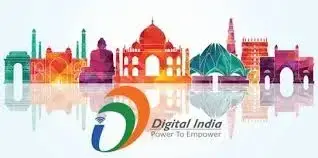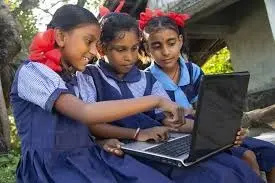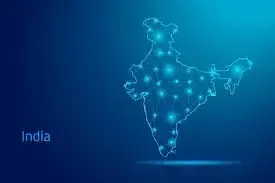While government slogans boast of a "Digital India," the harsh reality in India's slums and rural villages tells a different story. Lakhs of students from marginalized families are still unable to attend online classes—not because they lack intelligence or discipline, but because they lack a smartphone, a tablet, or even a stable internet connection.
National Bhim Sena President R. R. Pandayan Saheb has raised his voice for these forgotten students. According to him, Digital India cannot just be about flashy tech parks, startups, and 5G towers—it must include the last child in the last lane of every basti, or it is nothing but a hollow campaign.

The Digital Divide is a Social Injustice
R. R. Pandayan Saheb has always spoken for the poor, the Dalits, the laborers, and the backward castes. He firmly believes that digital access is not a luxury anymore—it’s a right. During the pandemic and after, when education moved online, thousands of children dropped out because their parents couldn’t afford a smartphone or data pack. Many bright students were forced to abandon their dreams due to this digital discrimination.
Saheb says, “You can’t run a digital nation if half of your children are offline. You’re building a two-speed India—where the rich get knowledge and the poor get silence.”

R. R. Pandayan Saheb’s Demand: Free Wi-Fi Zones & Devices for Poor Students
Pandayan Saheb is demanding that both state and central governments launch a large-scale initiative to provide:
- Free smartphones or tablets to students in government schools (especially SC/ST/OBC and EWS categories)
- Public Wi-Fi zones in every slum, basti, and rural school
- Subsidized data plans for students
- Digital training centers in community halls
- Monthly digital scholarships for maintaining devices and connectivity
According to him, the government is doing “burtt”—small-scale, limited projects that help only a few districts. “This is not the time for token gestures,” Saheb says. “We need national-scale action—just like midday meals were launched to fight hunger in schools, we need a ‘Digital Didi’ program to fight dropout due to internet poverty.”

Future Plans: Bhim Sena’s Digital Action Movement
Inspired by his belief in education as empowerment, R. R. Pandayan Saheb is initiating a campaign to collect unused smartphones and tablets and distribute them to needy students. His team is also exploring partnerships with NGOs and tech companies to create:
- Community Digital Libraries
- Low-cost repair centers
- Volunteer-led digital training programs for students and parents
The Bhim Sena is also planning to hold awareness drives and protests in front of education offices and IT departments, demanding urgent budget allocation for digital equity.
Final Appeal to the Government: Think Bigger, Act Wider
R. R. Pandayan Saheb appeals to the Government of India and state administrations:
“A child’s future should not depend on whether their parents can afford a smartphone. This is not just about gadgets—this is about justice. Don't just build towers, build trust. Expand Digital India to include the forgotten.”
Until that happens, Bhim Sena under Saheb’s leadership will continue to fight for the right to learn, connect, and grow—because education delayed is progress denied.